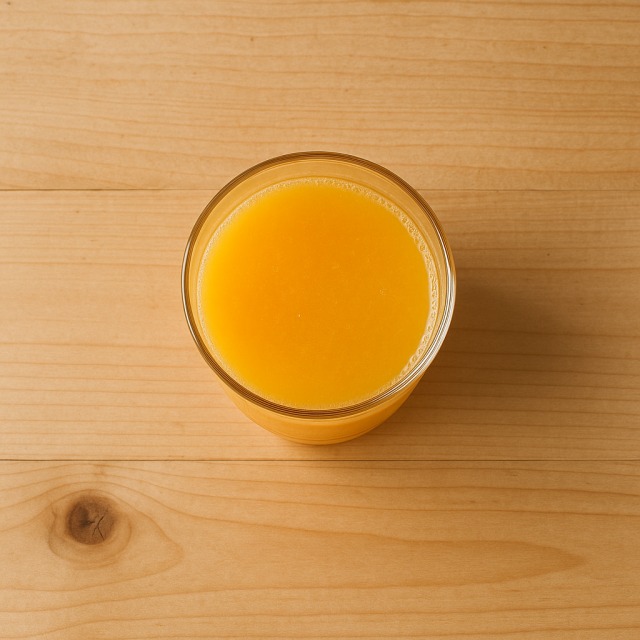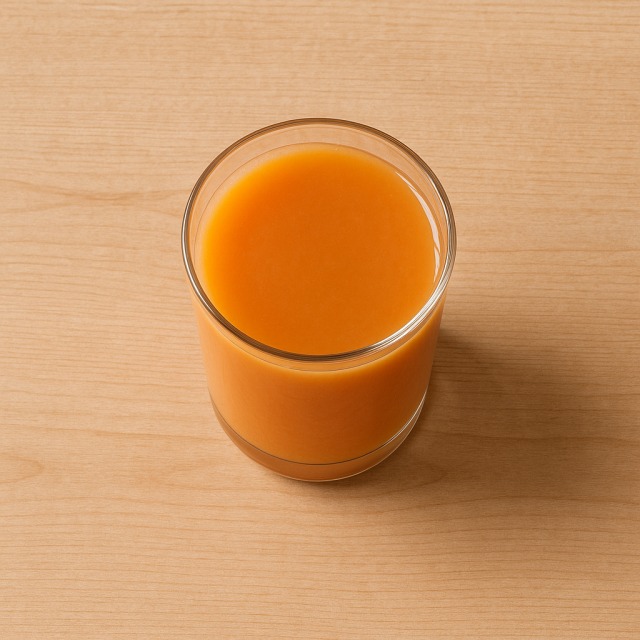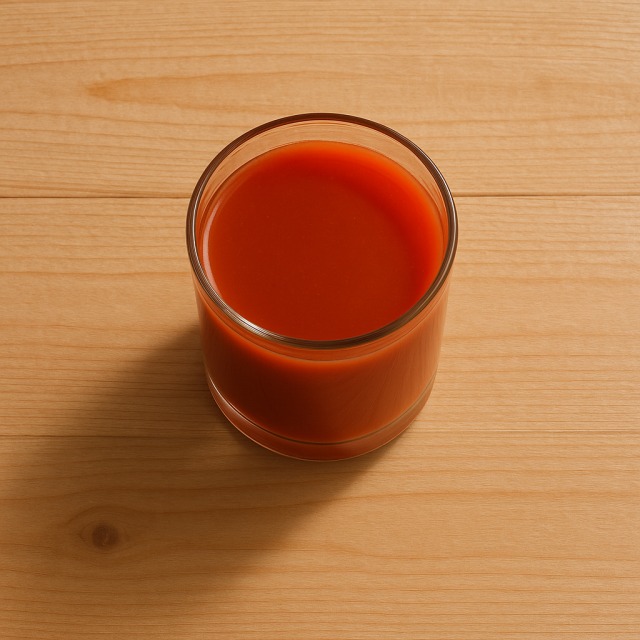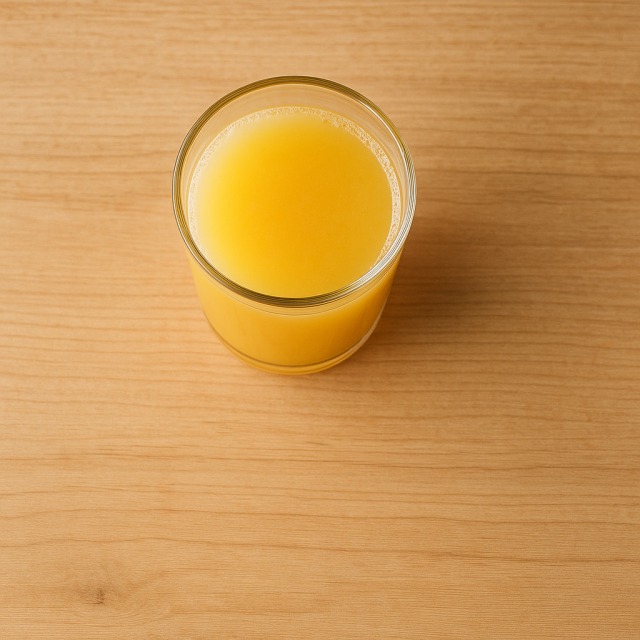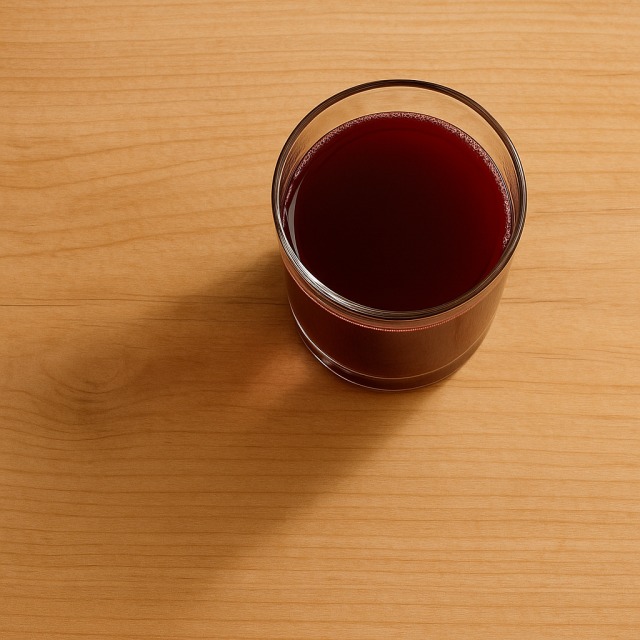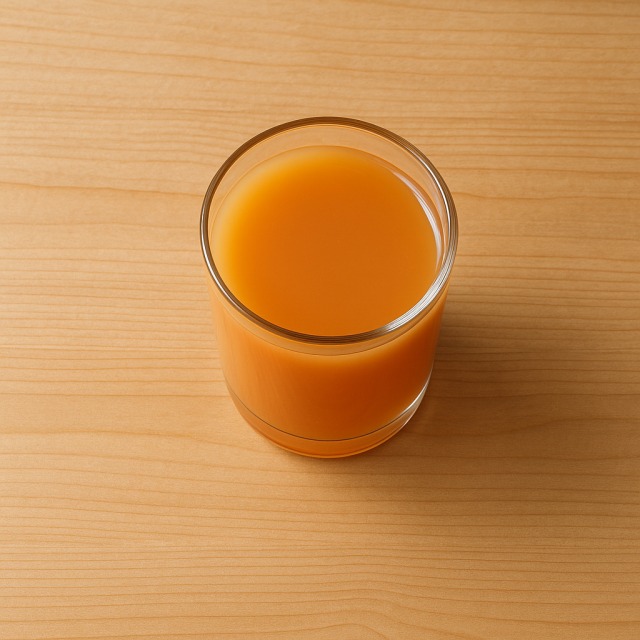Calorie Chart / Beverages / Juice - Apple
How Many Calories Are in Apple juice?
Calculation of the nutritional value & Recommended Dietary Intake of apple juice
For ml and a calorie requirement of kcal
| Calories 113 kcal | Proteins 0.5 g | Lipids 0 g | Carbohydrates 28 g |
| 6% | 1% | 0% | 10% |
Health benefits of apple juice
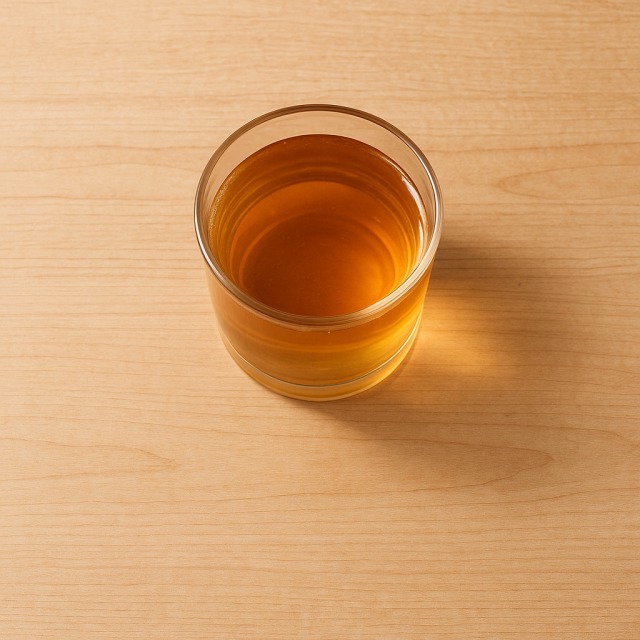
Apple juice - 100ml
Calories 45 kcal
Proteins 0.2 g
Lipids 0 g
Carbohydrates 11 g
With around 45 kcal per 100 g, apple juice is considered a low-calorie drink, especially if you compare it with sugary sodas that can top 100 calories for the same weight. Those few calories mainly come from natural fructose, while proteins and lipids remain virtually absent.
Its micronutrient profile includes vitamin C (although less than in a fresh apple), small amounts of vitamin B6, and a useful supply of potassium that helps regulate blood pressure. Polyphenols such as quercetin and chlorogenic acid give apple juice antioxidant properties that are believed to support cardiovascular health and limit oxidative stress; the term "believed" is appropriate because most studies are still observational. Despite the drink's modest calories, these compounds provide extra nutritional interest.
Because it is nearly 88% water, apple juice contributes to hydration without adding many calories, making it popular among athletes who need quick sugars before endurance training. Historically, the beverage has been pressed in Europe since the Middle Ages, long before industrial pasteurisation made it shelf-stable. Moderating portion size keeps both sugars and calories under control.
When you crave something sweet but worry about calories, apple juice can be a lighter alternative to desserts like crumble or calorie-dense snacks such as chocolate mousse. However, its calories can add up if you pour large glasses, so measuring servings remains wise.
Tips for incorporating apple juice into a balanced diet
To keep calories reasonable, enjoy apple juice as a base for homemade smoothies: blend 100 ml with a handful of spinach, half a banana, and a spoonful of chia seeds. The fibres and proteins from these ingredients slow sugar absorption and make the drink more filling without adding many calories.
For breakfast, replace part of the milk in your bowl of oat flakes with chilled apple juice; the natural sweetness lets you skip extra sugar, trimming calories yet keeping flavour. Athletes looking for rapid energy can freeze apple-juice ice cubes and drop them into their water bottle during training to add mild sweetness while still monitoring calories.
In savoury cooking, reduce apple juice in a pan with rosemary to glaze a duck breast. The caramelised coating delivers taste with fewer calories than a butter-based sauce. The same reduction pairs well with grilled pork roast or baked carrot sticks, giving a sweet-and-sour touch while keeping calories moderate.
Remember: one small glass (150 ml) provides roughly 70 calories. If you are controlling calories strictly, dilute it half-and-half with sparkling water for a refreshing spritzer that cuts calories in half.
Frequently Asked Questions
- How many calories are in apple juice?
- Apple juice provides 45 kcal per 100 g.
- Is apple juice rich in vitamin C?
- It contains some vitamin C, but less than a fresh orange. If you need more vitamin C without increasing calories too much, pair a small glass of apple juice with a piece of kiwi.
- Can I drink apple juice while trying to lose weight?
- Yes, but mind the calories. Limit yourself to 150 ml portions (≈70 calories) and favour whole fruit for extra fibre.
- Does fresh-pressed juice have fewer calories than commercial juice?
- The calorie content is practically the same; both derive calories from natural sugars. The difference lies in vitamin retention and the absence of added sugars in fresh juice.
- How do apple-juice calories compare to orange juice?
- Orange juice averages 42–46 kcal per 100 g, very close to apple juice. The choice should depend on taste and micronutrient goals rather than calories alone.
Similar foods
Information provided by Calorie Menu may contain inaccuracies or errors. It cannot, under any circumstances, substitute medical advice or medication.
